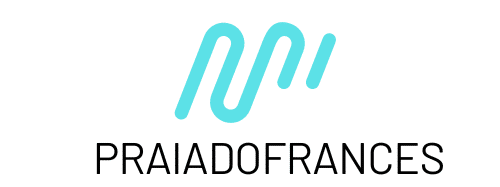Can AI-Powered Skin Analysis Apps Revolutionize Dermatology?

The advent of AI technology has revolutionized various industries, and the medical sector, particularly dermatology, is no exception. Artificial Intelligence (AI) is now being utilized in skincare to help detect and treat several skin conditions. Modern dermatologists are increasingly relying on AI-based apps for a wide range of tasks, spanning from skin cancer detection to personalized skincare recommendations. These AI-powered skin analysis apps are fast becoming an indispensable tool for both patients and dermatologists. But, how is this technology changing the landscape of dermatology? Let’s delve in.
The Role of AI in Dermatology
The introduction of AI technology in the field of dermatology is a game-changer. Dermatologists are now using AI-based apps to improve the accuracy of their diagnosis and treatment.
Sujet a lire : How Can Voice-Assistant Technology Aid Dyslexic Readers?
AI technology utilizes algorithms for processing and analyzing data, including skin images. These algorithms have been trained using vast amounts of clinical data, enabling them to identify patterns and correlations that might not be obvious to humans. Consequently, they can analyze skin lesions in images, classify them, and assist in the diagnosis of a wide range of skin conditions, including cancer.
The technology goes beyond simple image analysis. It can provide comprehensive skin care advice based on the individual’s skin type and condition, their lifestyle, and environmental factors. This allows dermatologists to offer highly personalized skin care and treatment plans, contributing to better patient outcomes.
Lire également : What’s the Role of AI in Crafting Sustainable Urban Development Plans?
Revolutionizing Skin Cancer Diagnosis
One of the major areas where AI-powered skin analysis apps are making a substantial contribution is in the diagnosis of skin cancer.
These apps use advanced algorithms to analyze skin lesion images, detecting signs of melanoma and other forms of skin cancer. The app uses the data collected from the images and compares it with the data in its database, containing images of various skin conditions. The app then provides a risk assessment, indicating whether the skin lesion is likely to be cancerous or not.
Early detection of skin cancer is crucial for successful treatment. AI-based apps are a powerful tool for early detection as they can analyze images and detect cancer signs that may be overlooked by the human eye. The use of these apps can significantly improve the speed and accuracy of skin cancer diagnosis.
Improving Patient Care and Treatment
AI-powered skin analysis apps are not just beneficial for dermatologists. They are also valuable for patients, enabling them to take better care of their skin.
These apps provide users with personalized skincare advice, based on the analysis of their skin images. They can guide the users about the right skin care products to use, the lifestyle changes to make, and the precautions to take to maintain their skin health.
Moreover, patients can use these apps to monitor their skin conditions over time. They can track changes in their skin and get alerts if the app detects any potential issues. This can lead to early detection and treatment of several skin conditions.
Empowering Dermatologists with Data
The use of AI in dermatology has ushered in a data-driven approach to skin care. AI-based apps are capable of collecting, processing, and analyzing vast amounts of data, providing dermatologists with valuable insights.
The data collected by these apps can include images, patient history, lifestyle information, and environmental data, among other things. The analysis of this data can help dermatologists understand the underlying causes of skin conditions, identify patterns, and make informed decisions regarding the diagnosis and treatment.
Furthermore, the data collected by these apps can be used for research purposes, contributing to the advancement of dermatology.
The Challenges and Future of AI in Dermatology
While AI-based skin analysis apps have a lot of potential, they are not without challenges. For instance, the accuracy of the analysis depends largely on the quality of the images. Poor quality images can lead to incorrect analysis and diagnosis. Furthermore, these apps should be used as a supplementary tool, not as a replacement for professional medical advice.
In spite of these challenges, the future of AI in dermatology looks promising. With advancements in AI technology and algorithms, these apps are likely to become even more accurate and sophisticated. They could potentially revolutionize dermatology, making skin care more personalized, effective, and efficient.
Enhancing Dermatology Education and Research
The impact of AI technology is not confined to patient care and treatment. Its implications extend to dermatology education and research as well. AI-powered dermatology apps are transforming how dermatology is taught and researched in academic and clinical settings.
These apps provide a rich database of clinical images of various skin conditions, which can be used for teaching and training purposes. Dermatology students and trainees can use these apps to learn about different skin diseases, understand their clinical presentation, and familiarize themselves with the diagnostic process. The use of AI in dermatology education can help students and trainees enhance their diagnostic accuracy and clinical skills.
Moreover, the data collected by these apps can be used for research. Dermatologists can use this data to study the epidemiology of skin diseases, explore their etiological factors, and investigate the effectiveness of different treatment interventions. The use of machine learning and deep learning techniques can further facilitate the analysis of this data, allowing researchers to identify patterns, make predictions, and generate new insights.
By enabling access to a vast amount of clinical data, AI-powered dermatology apps are facilitating research and innovation in dermatology, contributing to the development of new treatments and therapies.
Conclusion: The Future of AI in Dermatology
The use of AI in dermatology is a paradigm shift, transforming the way dermatologists diagnose and treat skin conditions. AI-powered dermatology apps are proving to be an invaluable tool, enhancing the speed and accuracy of skin analysis, improving patient care and treatment, and advancing dermatology education and research.
However, it’s essential to remember that these apps should be seen as a complement to, not a replacement for, professional dermatologists. While AI can analyze skin images and detect skin lesions, the human touch in dermatology is irreplaceable. Dermatologists’ clinical judgment, experience, and patient interaction cannot be replicated by any technology.
Despite the challenges, the future of AI in dermatology is bright. With continuous advancements in AI and neural network technologies, these apps are set to become even more sophisticated. They could potentially bring about a revolution in dermatology, leading the way towards more personalized, efficient, and effective skin care.
As we continue to explore and harness the potential of AI, we must ensure that this technology is used ethically and responsibly. It is crucial to safeguard patient privacy, ensure the quality of the data, and maintain the trust and confidence of patients in this technology. With careful implementation and regulation, AI-powered dermatology has the potential to profoundly impact skin health and care in the future.
